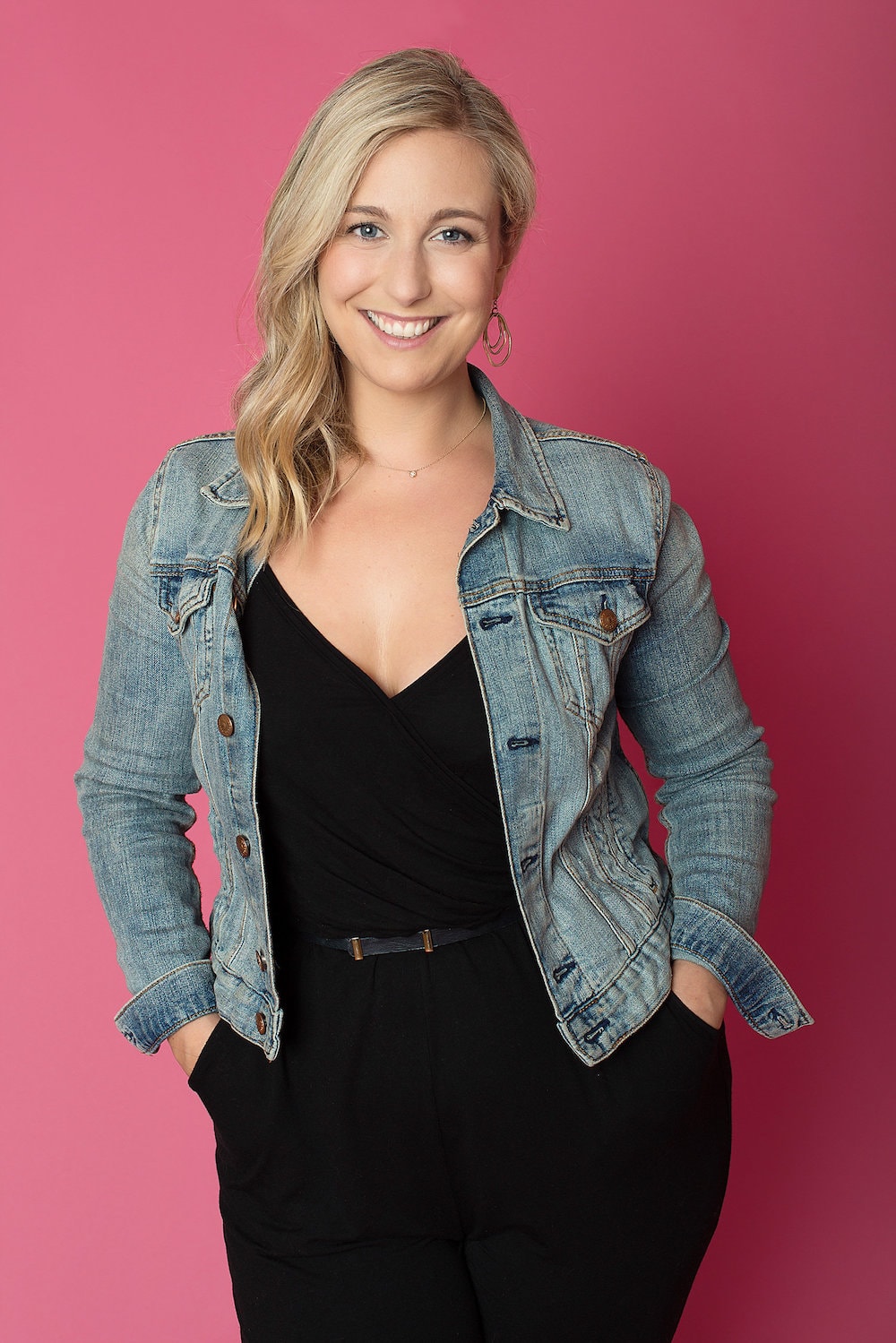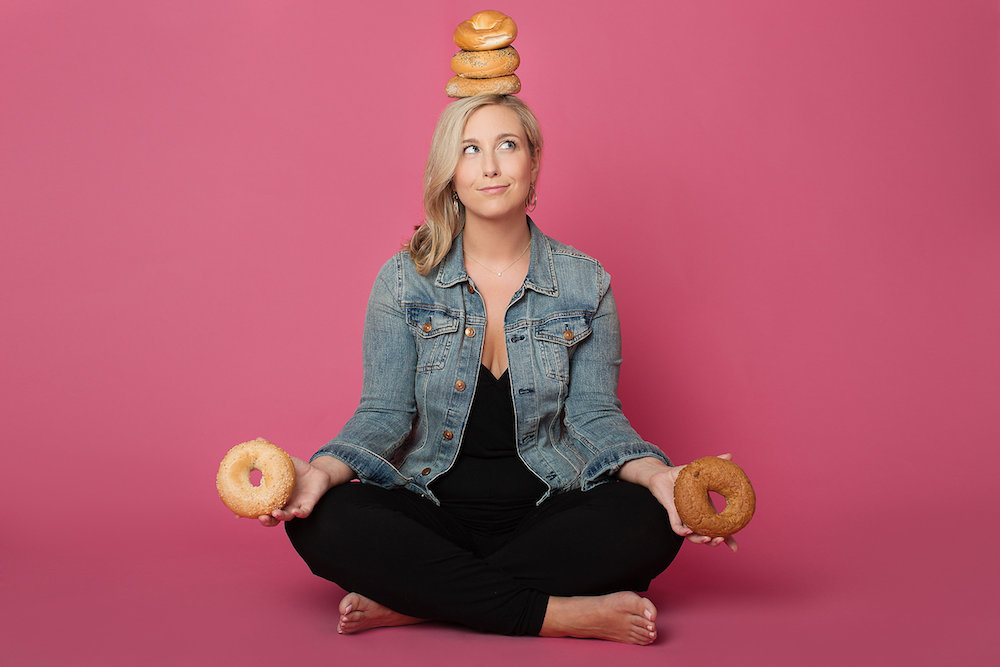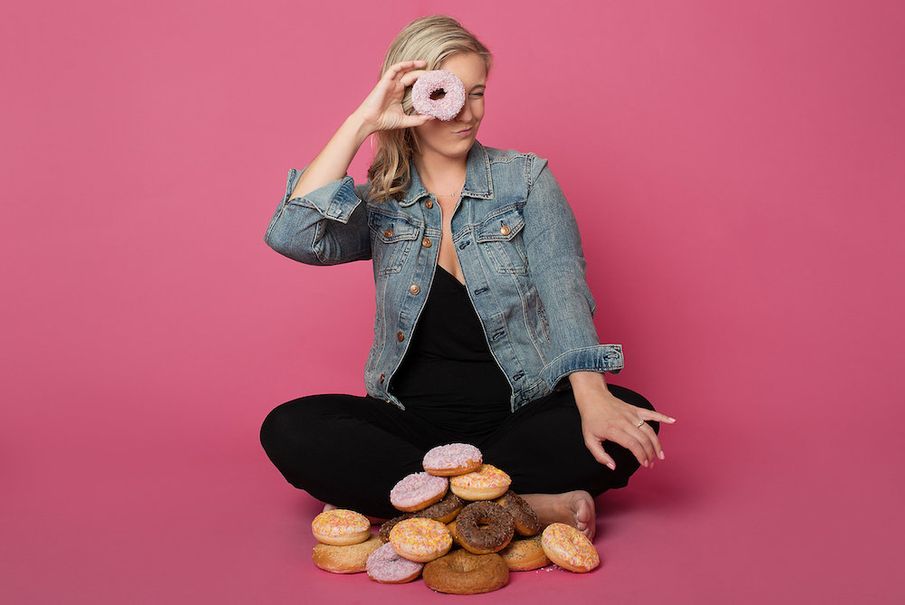Fighting diet culture and learning how to reconnect with your body, with nutritionist Laura Thomas
It’s a beautifully sunny Friday when I meet Laura Thomas, the registered nutritionist with a PhD in nutrition, at her office, the London Centre of Intuitive Eating – a hidden gem in Bethnal Green. A specialist in health at every size, non-diet nutrition, and intuitive eating, Laura is the social media influencer and soon-to-be-author cutting through the nutrition BS, telling people what they need to know to stay at the top of their game.
She is glowing – busy, and in her words, completely exhausted – but buzzing from her fast-growing business, upcoming wedding, and book (due to be published in January next year).
I’m meeting Laura to talk about intuitive eating: a non-diet, healthy, and quite simply refreshing approach to food and overall health. It’s an approach that’s gaining popularity, but as Laura states, is not one she wants to be a fad.
Intuitive eating is not another trend, but a way of living that not only helps people really listen to and understand their bodies, but one that fuels life as a whole, including the goals, dreams, and any other potential challenges we may face for the future. If you truly understand and respect your body, there is so much for you to achieve – getting to grips with intuitive eating is really just the beginning.

Laura Thomas. Photography | Liz Riley
How would you explain intuitive eating?
It’s actually sometimes helpful to start with what it’s not. Because a lot of influencers get the idea that intuitive eating is about eating whatever you want, whenever you want, with no regard to how food makes you feel in terms of things like energy and stamina.
Because we’re constantly bombarded with food rules, with shoulds and shouldn’ts, we effectively build this elaborate, complicated system in our heads for eating, causing confusion, stress and anxiety.
We’ve created a shitstorm in our heads, going through this battle every time we make a decision about food.
So how do we free ourselves from that storm?
The way I like to describe it, is that intuitive eating is moving away from, and completely deconstructing, these food rules. It’s getting away from those external influences on what you should or shouldn’t eat, and instead making food decisions and choices based on internal cues – hunger and fullness, satiety, but also pleasure, and how food makes you feel. It’s also a tool to help you build a healthier relationship with food, body, and self, to help you move away from disordered eating patterns and chronic dieting.
Intuitive eating is basically a system to teach you how to get back in touch with the signals that your body is sending you about food intake.
What can people do to start breaking away from diet culture?
The first thing I do when a new client comes in is go through their social media with them. I will get them to be brutally honest about who they’re following and why. I tell them this isn’t a permanent thing; if you want to go back to following that person you can, but maybe just clear out your feed for a while and replace them with more positive messages, and see if you feel any different.
There are sort of litmus tests you can try, to help you during this step. If you cover up the caption and it still looks like a #fitspo [fitspiration] or #cleaneating then just get rid of it. It doesn’t matter how empowering the message is, if the image doesn’t connect with what the caption is saying, there’s a disconnect there.
Also if they’re only promoting one body type, if they are not being inclusive or diverse in the types of bodies – and that applies to food as well – if they’re just posting pictures of salads, you might question that. Or if they’re being very militant about eating, unfollow them and see how you feel.
But social media can be a positive tool?
Yes – on the flipside of that, of course, is filling up your social media with stuff about intuitive eating, but aside from that, what are your interests outside of food and exercise? Friends or travel, or music, or art? There are so many more important things in the world to consider, and so many more important issues – and that’s kind of what the thesis of my book is.
We’re figuring out how to break free from diet culture, how to get our shit together around food, but now what? That’s not the end point, this is the starting point, to engage in these other issues, whether it’s a personal thing like starting a business, or whether it’s wider, social justice issues. Getting your shit together around food is really a starting point for other amazing things to happen.
What are your tips to start intuitive eating?
So I think my podcast, Don’t Salt My Game, is a good resource to get you started, because when you’ve removed all of the fitspo, clean eating, and wellness stuff, you need to fill the gaps with other, more positive messages.
It’s a way to get more support and feel supported in the process, and hear other people’s stories; how diet culture affected them, their relationship with food, and their journey to the other side.
What do you talk about?
The podcast covers the theory behind IE, but also some of the practical stuff. We recently did an episode on polycystic ovary syndrome – bridging the gap between the non-diet approach and managing a condition. The knee-jerk reaction when it comes to health is lose weight, but that might not be possible, or you might already be slim – why, then, would you put yourself on a diet?
I would also recommend the book Intuitive Eating by Evelyn Tribole and Elyse Resch, as well as their workbook. Through reading these you can really learn about IE.
What’s your opinion on fitness tracking apps?
Get rid of all tracking apps. If you have a disordered eating pattern, or an eating disorder, this is going to be a lot harder. But if you can be brave and take the plunge, get rid of any apps that record your “progress”. Tracking apps can get addictive!
Clients say to me all the time: “Oh, I don’t even look at it, I’m not really paying attention.” But it’s still there, you’re always glancing at it. Are you running around your bedroom at 10pm trying to make your 10,000 steps? Are you able to respect your body’s tiredness, or skip a workout, if you’re still paying attention to the calories burned?
My next step would be – and again, this is really tricky and nuanced – to try to pay more attention to your body. If you’re breaking up with these trackers and apps, you need to reconnect with what your body is telling you.

Photography | Liz Riley
I know everyone is saying: “Listen to your body!” But they don’t tell you how. You need to pay attention to all the ways that hunger shows up in your body, and start gently responding to those initial signs.
Don’t wait until there’s a massive pit in your belly, instead focus on when you’re losing energy, your mood dips, or lose concentration. That’s when you need to check in with yourself and question, could this be hunger? Approach these signs with a sense of curiosity, instead of being critical or judgemental.
Finally, how do you feel about becoming a published author?
I’m really excited to get this book out into the world – but I’m not claiming that intuitive eating is going to fix everything and everyone. I know it’s not this magic bullet and I definitely don’t want it to turn into the new trend. But at the same time, I know how helpful it is for the people who connect with it – it can be really liberating.
So for that group of people, suffering what I call a “clean eating hangover”, or for people who have been on a dieting merry-go-round their whole lives, or if they’ve had any level of disordered eating or eating disorder, those are the people who are really going to benefit from this book, and this approach to eating.
You can follow Laura on Instagram, @laurathomasphd or download her podcast, ‘Don’t Salt My Game’ from laurathomasphd.co.uk. Laura’s book will be available in early 2019.
Hero Photography | Liz Riley


Comments